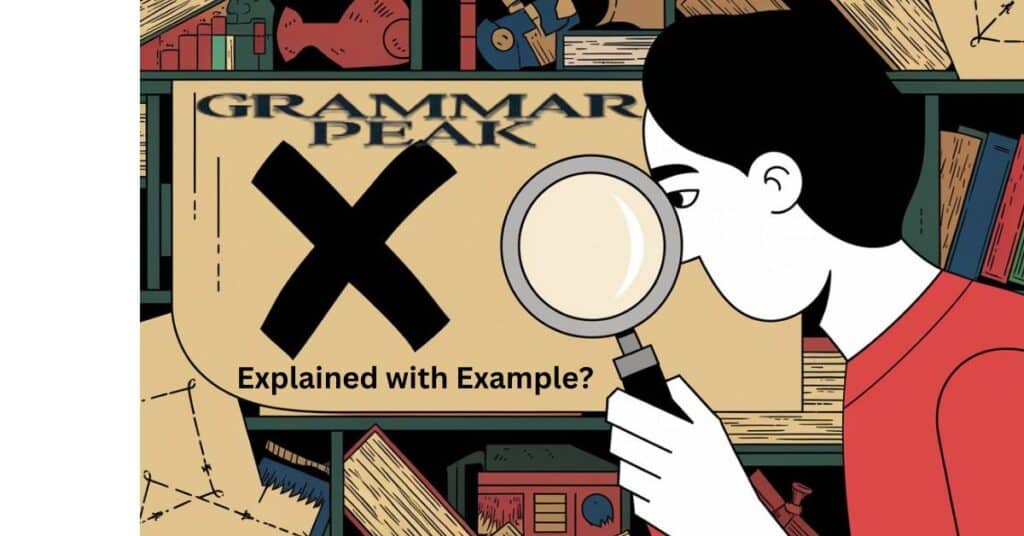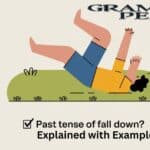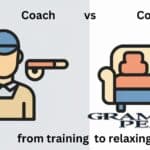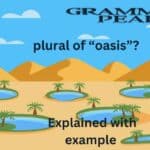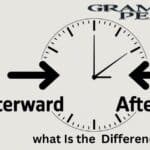Understanding the past tense of ‘seek’ is essential for anyone looking to improve their language skills. It can be confusing at times, especially when deciding whether to say “seek” or “sought.” In this article, we will explore the differences between these two forms.
We will also discuss how to use them correctly in sentences. By the end, you will have a much clearer understanding of this verb, making your writing and speaking more effective.
In the Present: Seeking Wisdom
In everyday language, we often use the verb “seek” in the present tense. When you say “I seek,” it means you are currently looking for something. This could be anything from knowledge to friendship. The act of seeking is ongoing.
Example,
- This present action is about actively looking for something valuable.
- Seeking wisdom is more than just gathering facts.
- It’s about understanding different perspectives and learning from experiences.
Explore these What is the Past Tense of ‘Seek’? Is it ‘Seek’ or ‘Sought’?
In the Past: The Quest of “Sought”
When we talk about the past tense of ‘seek’, we use the word “sought.” This form shows that the action of seeking has already happened.
Example,
- “I sought help last week,” indicates that the action is complete.
- This past adventure helps us reflect on what we have done and learned.
- The quest of “sought” is rich with meaning.
Present vs. Past: Easy Recap
Now, let’s compare the present vs. past tense forms of the verb “seek.” Understanding these differences is vital for effective communication. In the present tense, we use “seek.” In the past tense, we switch to “sought.” This simple change carries significant meaning.
To make this comparison clearer, here is a table that summarizes the two forms:
| Tense | Verb | Example Sentence |
| Present | Seek | I seek advice from my friends. |
| Past | Sought | I sought help when I was struggling. |
This table captures the essence of how we use these verbs in different contexts. In the present tense, we express ongoing actions. In contrast, the past tense reflects completed actions.
Read Must Be What is the Past Tense of ‘Seek’? Is it ‘Seek’ or ‘Sought’?
When to Say What
Knowing when to say “seek” or “sought” can be tricky. The key lies in understanding the context of your conversation. If you are discussing something that is happening now, use “seek.” If you are reflecting on something that has already happened, use “sought.”
Here are some more example sentences to consider:
| Sentence Type | Example |
| Present | I seek new challenges in my career. |
| Past | I sought advice from my mentor last year. |
| Present | They seek understanding through dialogue. |
| Past | We sought knowledge during our travels. |
| Present | She seeks inspiration from art. |
Mastering the Verb Game
Mastering the verb game involves understanding how verbs work in different tenses. This skill is essential for effective communication. It can elevate your writing and speaking abilities.
One effective way to practice is through storytelling. When you tell stories, you naturally switch between tenses. This helps you master the use of “seek” and “sought.” For example, you can share a story about a time you sought knowledge. You can also describe how you seek new information today.
Wrapping Up the Time Talk
In summary, understanding the past tense of ‘seek’ is crucial for effective communication. We explored how to use “seek” in the present tense and “sought” in the past tense. Each form serves a unique purpose in expressing our thoughts and experiences.
We discussed the importance of context when choosing between these two forms. We also touched on how storytelling can enhance our understanding of verbs. By telling stories, we can practice switching between tenses naturally.
FAQ” S
What is the past tense of “seek”?
The past tense of “seek” is “sought.”
When should I use “sought”?
Use “sought” when referring to actions that have already happened.
Can I use “seek” in a sentence?
Yes! For example, “I seek knowledge every day.”
How can I practice using these verbs?
You can practice by telling stories or engaging in language exercises.
Why is understanding tenses important?
Understanding tenses is crucial for clear and effective communication.
Conclusion
To conclude, the past tense of ‘seek’ is “sought.” Understanding when to use “seek” vs. “sought” enhances your language skills. This knowledge can help you express yourself more clearly. With practice, you will master these verbs and improve your communication.

Mason Blake is an experienced blogger with a passion for language and communication. With years of expertise in crafting informative and engaging content, Mason shares valuable insights on grammar and writing. His clear, concise, and reader-friendly approach has earned him a loyal following, helping readers sharpen their language skills and master the art of effective communication.

